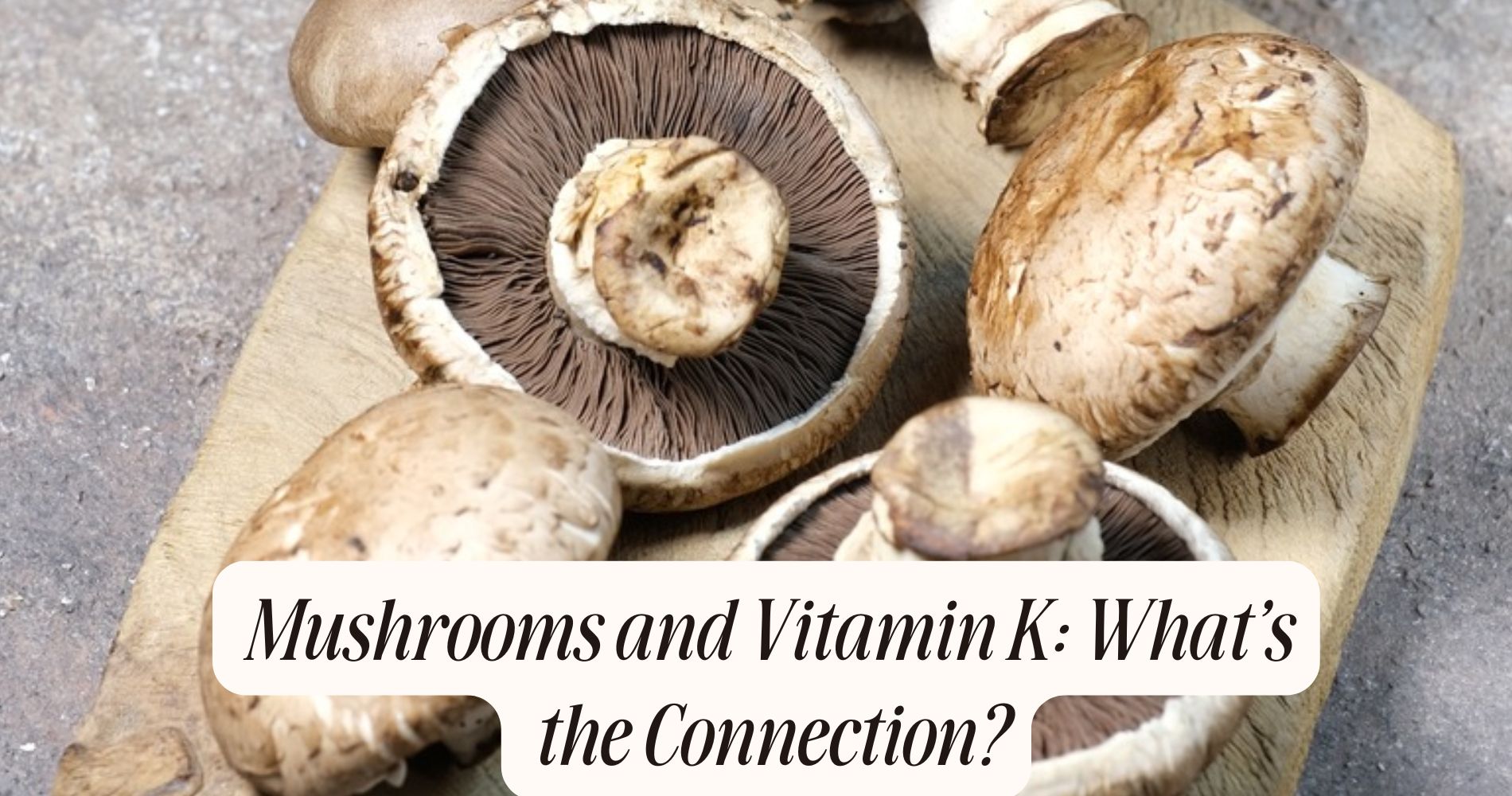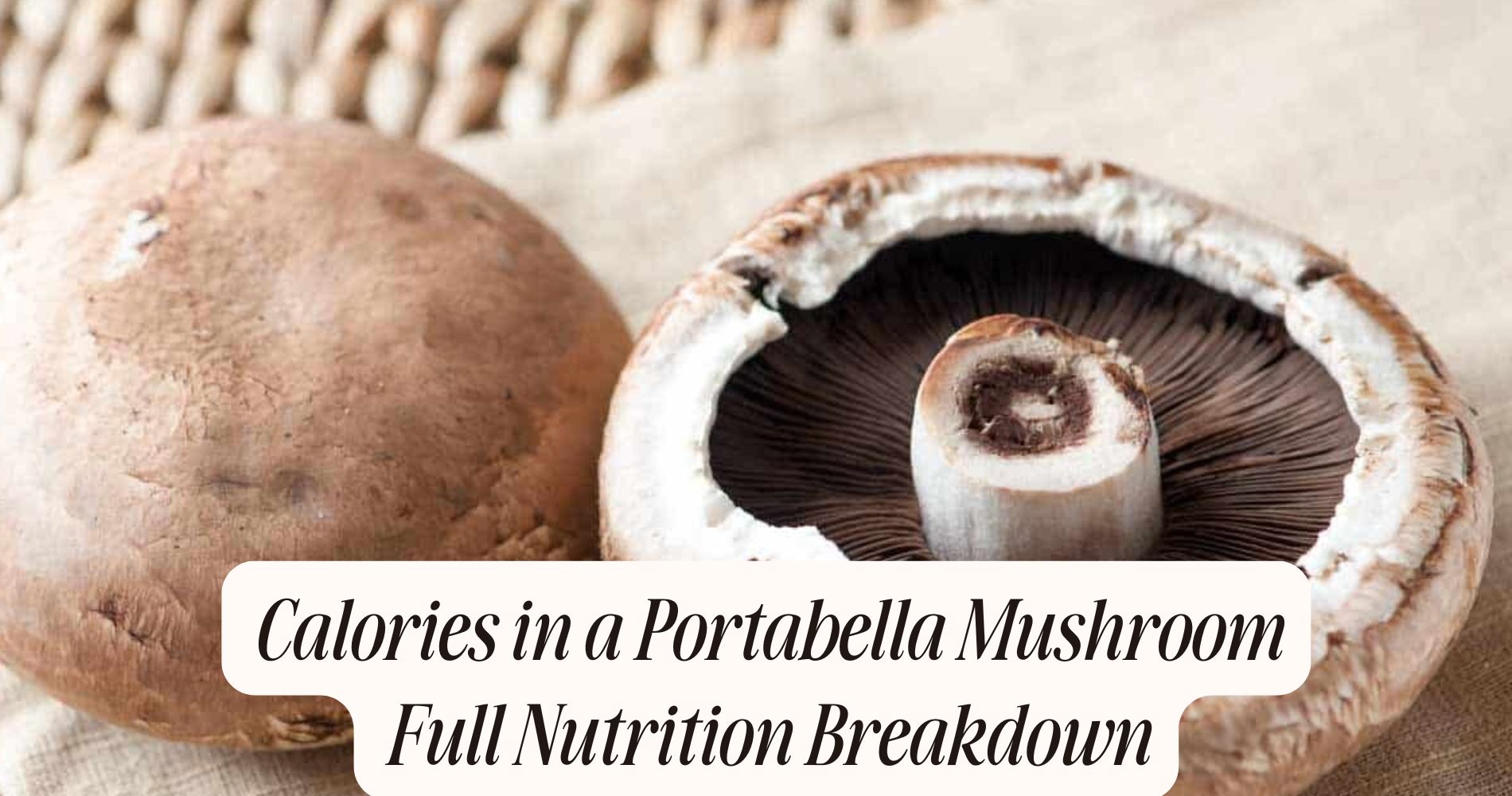
Mushrooms and Vitamin K: What’s the Connection?
If you’re exploring natural sources of essential nutrients, the link between mushrooms and vitamin K might surprise you. This crucial vitamin supports blood clotting and bone strength, and certain mushrooms—like shiitake and portobello—offer notable amounts. Including these fungi in your meals not only enhances flavor but also boosts your vitamin K intake naturally. Curious about how this connection supports your health? Let’s dive into the benefits of mushrooms and vitamin K in your daily diet.
Understanding Vitamin K: What You Need to Know
Vitamin K plays an essential role in your overall health, particularly in blood clotting and bone metabolism. You mightn't realize it, but understanding the sources of vitamin K can greatly impact your health.
Leafy greens like kale and spinach are well-known vitamin K sources, but mushrooms also offer a surprising amount. Incorporating these foods into your diet can lead to numerous health benefits, such as reducing the risk of fractures and improving cardiovascular health.
Since vitamin K is fat-soluble, pairing these foods with healthy fats can enhance absorption. So, consider adding a variety of vitamin K-rich foods to your meals for ideal health. It's a simple step that can yield powerful results for your body.
The Role of Vitamin K in the Body
Understanding how vitamin K functions in your body can illuminate its importance for your health. This essential nutrient plays a fundamental role in blood clotting, helping to prevent excessive bleeding when you get injured.
Additionally, vitamin K supports bone health by regulating calcium balance, which can greatly reduce the risk of fractures as you age. Its vitamin functions extend to promoting cardiovascular health, as it helps prevent calcium buildup in arteries.
Types of Mushrooms Rich in Vitamin K
Several types of mushrooms can serve as excellent sources of vitamin K, making them a valuable addition to your diet.
Shiitake mushrooms are particularly well-known for their health benefits, offering a rich supply of vitamin K2, which plays an essential role in bone health and blood clotting. Incorporating shiitake into your meals can enhance flavor and boost your nutrient intake.

Portobello mushrooms are another great option, providing a hearty texture and serving as a versatile base for various dishes. These portobello sources also contribute to your vitamin K levels, promoting overall wellness.
Nutritional Breakdown: Vitamin K Content in Popular Mushrooms
Mushrooms not only add flavor and texture to your meals but also come packed with valuable nutrients, particularly vitamin K.
Different mushroom varieties contribute varying amounts of this essential vitamin. For instance, shiitake mushrooms offer about 3.6 micrograms of vitamin K per 100 grams, while portobello mushrooms provide around 2.5 micrograms. Even white button mushrooms contain a respectable 0.5 micrograms.
Consuming a mix of these mushrooms can enhance your vitamin absorption, supporting your overall health. Incorporating these tasty fungi into your diet can help you meet your nutritional needs while enjoying a variety of flavors.
How Mushrooms Contribute to Bone Health
While many people associate bone health primarily with calcium and vitamin D, mushrooms play an important role in supporting strong bones as well. Certain mushroom varieties, including shiitake and maitake, are rich in vitamin K, which contributes to bone density by helping to regulate calcium in your body.
This regulation guarantees that calcium is deposited in your bones instead of your arteries, promoting a healthier skeletal structure. Additionally, mushrooms contain minerals like phosphorus and potassium that further support bone health.

Including a variety of mushrooms in your diet not only enhances the flavor of your meals but also provides you with crucial nutrients that help maintain strong bones. So, consider adding mushrooms to your next dish for a bone-boosting benefit!
The Impact of Vitamin K on Blood Clotting
Vitamin K plays an essential role in the blood clotting process, helping your body prevent excessive bleeding. This vitamin is critical for synthesizing proteins that regulate blood coagulation, which is important for wound healing.
When you consume foods rich in vitamin K, like mushrooms, your body can effectively absorb and utilize this nutrient. Ideal vitamin absorption guarantees that your blood can clot properly, reducing the risk of prolonged bleeding after injuries.
Deficiencies in vitamin K can lead to serious health issues, including increased bleeding and bruising. By maintaining a balanced diet that includes vitamin K, you support your body’s ability to manage blood clotting, which is fundamental for overall health and well-being.
Incorporating Mushrooms Into Your Diet
Incorporating mushrooms into your diet can be both easy and beneficial, especially given their rich nutrient profile, which includes vitamin K. You can start by adding mushrooms to salads, stir-fries, or omelets, enhancing both flavor and nutrition.
Exploring various mushroom recipes, like stuffed mushrooms or mushroom risotto, can make meals exciting.
Mushrooms offer dietary benefits beyond vitamin K; they’re low in calories, high in fiber, and packed with antioxidants. Consider trying different varieties, such as shiitake, portobello, or cremini, each bringing unique flavors and textures.
Cooking Methods to Preserve Vitamin K in Mushrooms
To maximize the vitamin K content in mushrooms, it’s important to choose cooking methods that minimize nutrient loss.
Steaming techniques are excellent, as they cook mushrooms quickly and retain more vitamins compared to boiling. When you steam, the mushrooms only come into contact with water briefly, preserving their nutritional profile.
Sautéing methods can also be beneficial if done correctly. Use a small amount of healthy oil and cook over medium heat for a short time.

This approach helps maintain the mushrooms' texture and flavor while keeping vitamin K intact. Avoid prolonged cooking or high temperatures, as they can degrade vitamin K.
Other Nutrients Found in Mushrooms
While you may associate mushrooms primarily with their vitamin K content, they also boast a variety of other essential nutrients that contribute to overall health.
Different mushroom varieties, like shiitake, oyster, and portobello, provide unique nutrient benefits. For instance, shiitake mushrooms are rich in B vitamins, which support energy metabolism and brain function.
Oyster mushrooms are a great source of antioxidants, helping combat oxidative stress in your body. Additionally, mushrooms contain minerals like selenium and copper, essential for immune function and red blood cell formation.
Incorporating a mix of these delicious fungi into your meals not only enhances flavor but also boosts your nutrient intake, promoting better health and well-being.
Tips for Selecting and Storing Mushrooms for Maximum Nutrition
Selecting and storing mushrooms properly can maximize their nutritional benefits and enhance your meals.
When choosing mushrooms, look for freshness indicators like firm, plump caps and a clean, unblemished surface. Avoid any that appear slimy or have dark spots.
Once you’ve selected your mushrooms, store them in breathable storage containers, such as paper bags, to prevent moisture buildup. This helps maintain their freshness and flavor.
Keep them in the refrigerator, ideally in the vegetable crisper, and consume them within a week for the best nutritional value. If you notice any signs of spoilage, it’s best to discard them.
Elevate Your Wellness with SUPER MUSHROOM GUMMIES
If you're looking for an easy and delicious way to enjoy the benefits of mushrooms—including their vitamin K content—try SUPER MUSHROOM GUMMIES by Well Gummies. Packed with 10 functional mushrooms in a convenient chewable form, these vegan-friendly gummies support focus, calm energy, immunity, and overall balance. With a fresh wild berry flavor and zero crash or jitters, they're as enjoyable as your favorite treat—perfect for staying sharp and energized all day.
Frequently Asked Questions
Can Mushrooms Provide Enough Vitamin K for Daily Needs?
Mushroom varieties can contribute to your daily intake of vitamin K, but they typically don’t provide enough on their own. It’s essential to combine them with other sources to meet your daily needs effectively.
Are There Any Side Effects of Consuming Too Much Vitamin K?
If you consume too much vitamin K, you might experience side effects like blood clotting issues or interactions with anticoagulant medications. It’s crucial to monitor your intake and consult a healthcare professional if concerned.
How Do Different Cooking Methods Affect Vitamin K Levels in Mushrooms?
Different cooking techniques can impact vitamin K levels in mushrooms. When you sauté or steam, you preserve more nutrients, while boiling may lead to significant losses. Proper mushroom preparation enhances their health benefits, so choose your methods wisely.
Can Vitamin K From Mushrooms Interact With Medications?
Yes, certain mushroom varieties can affect vitamin absorption, potentially interacting with medications. If you’re on anticoagulants or other drugs, consult your healthcare provider before adding mushrooms to your diet to avoid complications.
Are Fermented Mushrooms a Good Source of Vitamin K?
Fermented mushrooms can offer various health benefits, including potential vitamin K content, depending on the mushroom varieties used. Incorporating them into your diet could enhance your nutrient intake while supporting gut health and overall wellness.
Conclusion
Incorporating mushrooms into your diet is a delicious way to boost your Vitamin K intake and support your overall health. By enjoying varieties like shiitake and portobello, you're not only enhancing your meals but also promoting better bone health and cardiovascular well-being. Remember to choose cooking methods like steaming or sautéing to preserve their nutritional benefits. With proper selection and storage, you can maximize the health advantages of these versatile fungi in your everyday meals.




